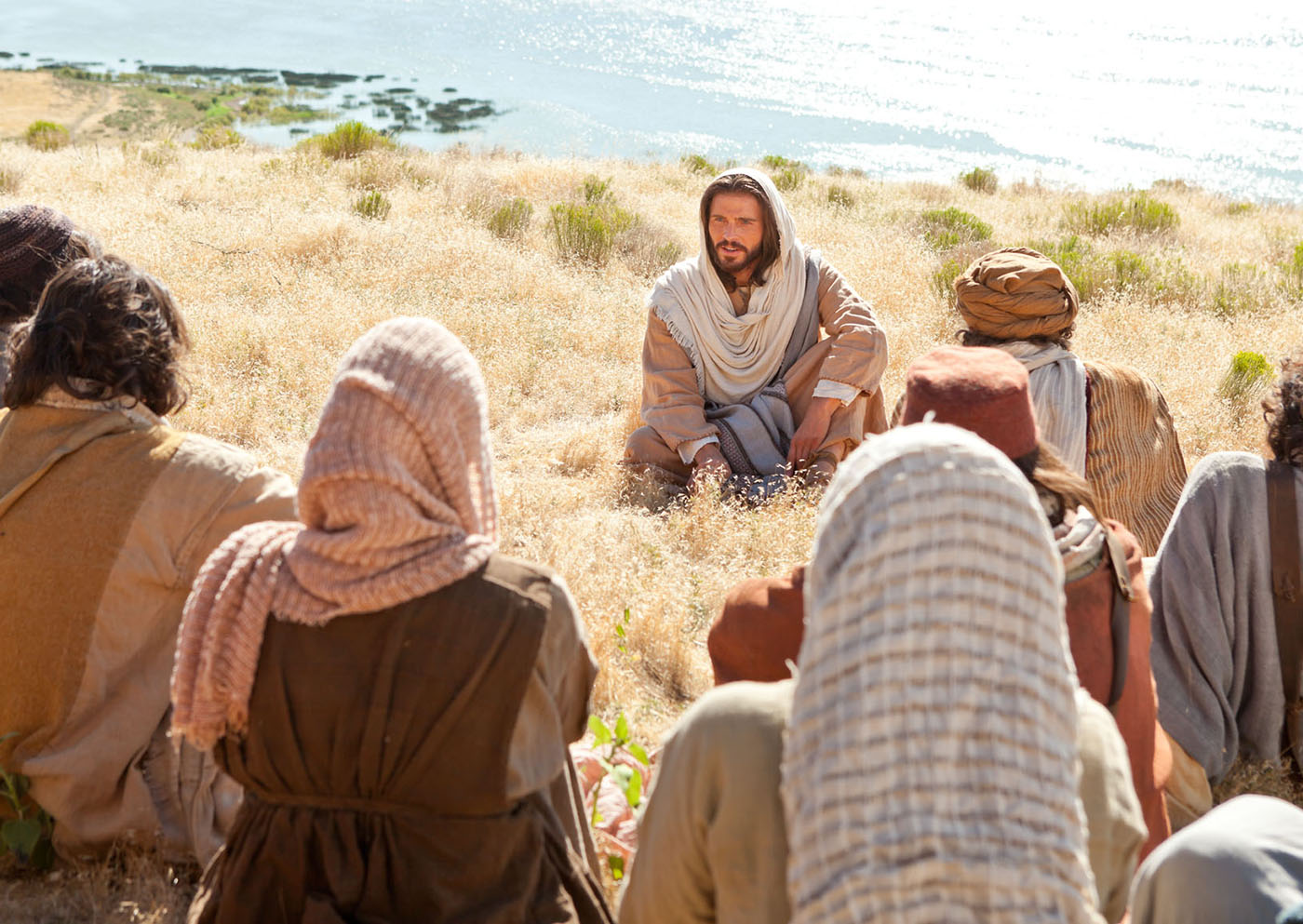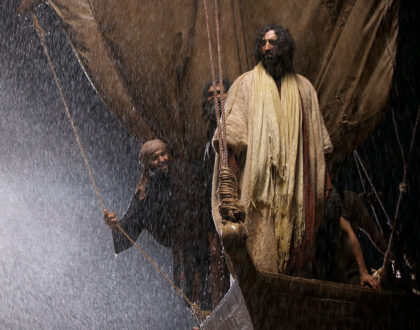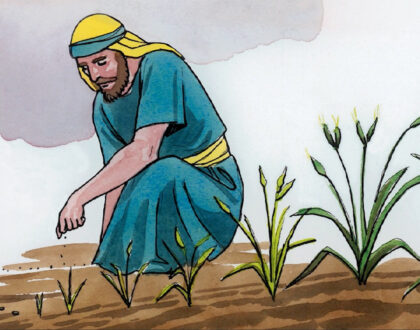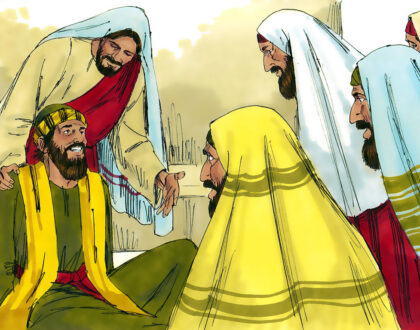A Blessed People

“A Blessed People”
Archbishop Loren Thomas Hines
Fourth Sunday of Epiphany
January 29, 2017
Readings: Micah 6:1-8, Psalm 37:1-6
1 Corinthians 1:26-31
Matthew 5:1-12
We’re on the fourth Sunday of Epiphany. This is a time when God prepares us to recognize and realize His covenant and commitment to us. God is with us. He will never leave us nor forsake us. This should bring us hope and peace and confidence, not anxiety and fear. If God is for us, who can be against us? Governments, institutions and people may come against us, but they can’t stop God who is in us. In spite of this, like Israel we forget what God has done for us and many times, we find ourselves going against Him.
Micah brings out the case that God has against Israel. On Good Friday, these readings from Micah are part of our reflection. We may be tempted to point a finger at Israel and say, “Didn’t God bring them out of Egypt, set them free and lead them to the Promised Land? Why are they worshipping other gods?” But in our lives, we do the same as Israel did when we allow fears and anxieties to take away all that God has given us.
These passages from Micah read like a court case. “My people, what have I done to you, and how have I wearied you?” Why do we use God’s name in vain? Why do we allow fear and anxiety into our lives? “And how have I wearied you? Answer Me.” Jesus has taken away sin from our lives. He has destroyed all the works of the devil, yet we still live like the devil has power over us. “I brought you up from the land of Egypt and ransomed you from the house of slavery.” Isn’t this what God did for us – deliver us from darkness? “I sent before you Moses, Aaron and Miriam.” The armies of Egypt were destroyed when the Red Sea swallowed them up, yet they continued to grumble and be fearful. “What does the Lord require of you but to do justice, to love kindness and to walk humbly with your God?” God has given us everything we need – deliverance from darkness, freedom from sin and the effects of sin – and this is what He expects of us in return – to walk in humility and not in arrogance. Yet sometimes we demand things of God and blame Him when we don’t get what we want. We accuse Him by our denial of what He’s given us. This is how we’ll be judged. We’ll be made to account for what we did with what God has given us. Are we living it, making it part of our life?
The Church at Corinth had their share of problems. Paul exhorted them by saying, “Consider your calling, brethren, that there were not many wise according to the flesh, not many mighty, not many noble; but God has chosen the foolish things of the world to shame the wise, and God has chosen the weak things of the world to shame the things that are strong, and the base things of the world and the despised God has chosen, the things that are not, so that He may nullify the things that are, so that no one may boast before God.” God looks to what the world considers as weak, not to the highly educated, wealthy and the elite; to those who will put their confidence in God. “….that He may nullify the things that are….” Things that are unseen – the Spirit, the power of God – control those that are seen. When someone comes against us in anger and we react, we bring ourselves to a state of weakness. But if we respond in love which is unseen, we end up more powerful. When we are living according to the ways of God, we become more powerful than those who come against us. God can destroy powers, for example governments, that come against us. He can put in the hearts of men whatever it is that will make them change. He “blinds” them so they can do the right thing, even if it’s against their will. “By His doing you are in Christ Jesus, who became to us wisdom from God, and righteousness and sanctification, and redemption….” We have been saved by Christ on the cross. The work is done. When we pray the prayer of salvation, we do it for our benefit because the work of our salvation is done. Christ’s ways are wisdom. Look at what He did on the cross. We see failure and defeat when we see Him nailed to the cross, but what we can’t see is more powerful. Our hope is in things that are not seen.
The Gospel speaks of the Beatitudes which describes who we are; what our character is. I’ve read the Beatitudes many times before, not realizing it is about me. God is speaking about us. “Blessed are the poor in spirit….” Poor in spirit means being humble, not arrogant. We acknowledge and confess our sins to God. “….for theirs is the kingdom of heaven.” This is how we manifest what He’s given us – when we are humble and not demanding. “Blessed are those who mourn….” We mourn because of our sins against God and because of the errors of our ways when we are not living out the life He’s given us. “Blessed are the gentle….” In a country where there are many who are arrogant and proud, how can you be gentle? When people drive without consideration for other motorists and you don’t drive aggressively, how can you make it? But gentleness requires that we be not demanding, not pushing our way, not insisting that we’re right. That gentleness puts us in a position of strength. A woman I know became very powerful because of her gentleness. Despite the persecutions that came her way, she remained joyful.
“Blessed are those who hunger and thirst for righteousness….” We spend more time adjusting to the world around us when we pursue what the world tells us would lead to success, but do we bring ourselves to a point of being hungry and thirsty for righteousness? Being hungry and thirsty for righteousness involves some pain and suffering. Do we face the issues of life in righteousness even if we’re persecuted? We are faced with a choice daily – righteousness or what the world promises? God gave us the Beatitudes to confront us and tell us how we ought to live our lives. We should always hear His voice asking us in Micah, “How have I wearied you?”
“Blessed are the merciful….” We want to react and fight back those who persecute us, but God wants us to respond in mercy. What we have done to others will come back to us. When we put others down in judgment and anger, instead of being merciful, we won’t receive mercy at our time of need. “Blessed are the pure in heart….” Purity of heart means seeing the good and not the evil. Some see only the evil and not the potential for good in people or situations. Jesus moved to Capernaum, right in the middle of darkness, so He can change it to light. He didn’t go there to judge them but showed them mercy, something He did many times and on many occasions. In the Old Testament, God used wicked kings to bring correction to Israel. This is something we should be careful about – judging people – because God can use anybody to serve His purposes. With a pure heart, you can see the good even if everybody else sees only bad in a person or situation.
“Blessed are the peacemakers….” We are the ones who bow down and humble ourselves. Maybe the others are wrong, but we don’t berate them. Instead we stay quiet and keep our peace. There’s a time to speak up. We should be careful about our judgments and accusations because they may come back to us. Nobody can judge anyone else and say they are going to hell. When we do this, we tell God He doesn’t know what He’s doing. When we begin to realize what Christ has done for us thru Lent, Easter and Pentecost, we will see that we’re complete, lacking no good thing, and then we will stop being demanding. “Blessed are you when people insult you and persecute you, and falsely say all kinds of evil against you because of Me.’ This isn’t how we see ourselves reacting when we’re persecuted for righteousness’ sake. We want to hit back. We should realize that anytime that there’s opposition, the enemy’s trying to prevent a good from happening.
Jesus said that we are the salt of the earth. When we walk in the Beatitudes, we will preserve the earth. Hold fast to peace. Be gentle even when people malign you. “Blessed” as used in the Beatitudes refers to spiritual blessings. Being blessed in this sense means the provisions of life will be ours. We have peace and don’t suffer from the effects of being anxious and fearful (like heart problems) when we don’t allow the words of those who persecute us to affect us. This is a challenge for us. I thought that God was talking to someone else, but the Beatitudes are for us. Why do we ask for blessings? Every blessing in heaven and earth has been given to us. What else is there to give? We should be ready to live in these blessings of God. When we make a mistake, we mourn, ask for forgiveness, repent and then go in peace.
We are a blessed people. Let us live blessed in peace, live humbly and gently. We don’t have to elbow our way. God parts the Red Sea. God is with us. Let us constantly remind ourselves of this truth.
Recent Sermons

Jesus, Calmer Of Storms
June 23, 2024

Harvest Time Stemming From The Smallest Seed
June 17, 2024

Not Bound By Limitations To Minister
June 10, 2024

